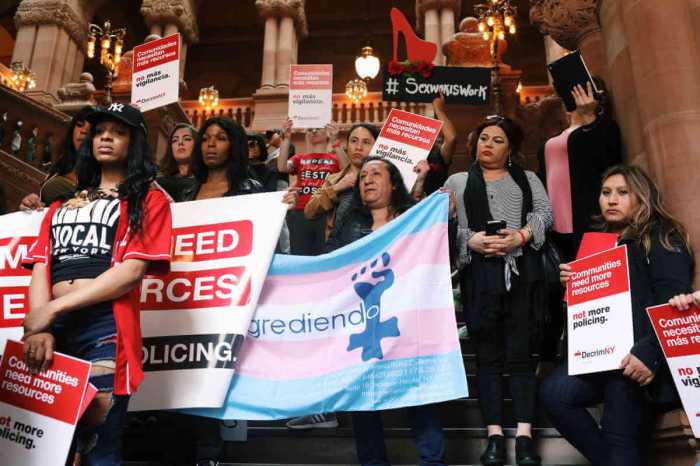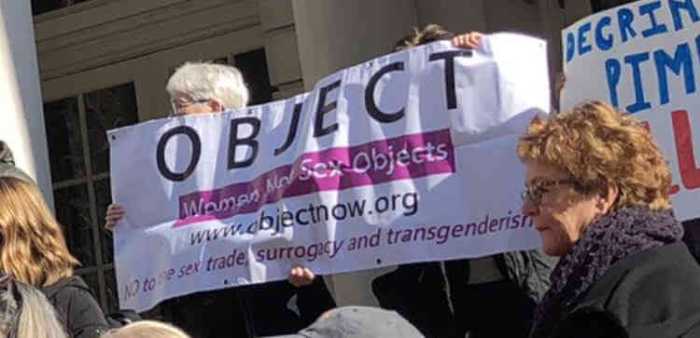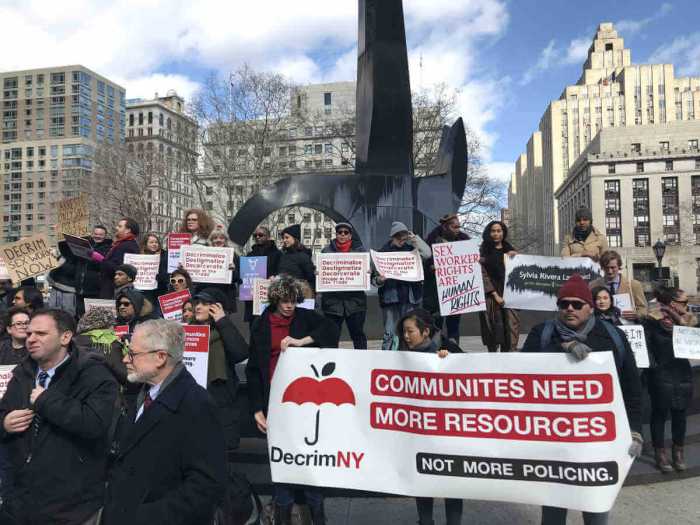Legalizing recreational pot is a matter of justice and sound public policy. Starting January 11, the State Assembly begins laying the groundwork for legalizing such use in New York.
If successful, that would mark a major step toward criminal justice reform. When I scheduled for State Senator Carol Bellamy’s 1977 race for City Council President — a citywide office now called Public Advocate — I had a standing order: she would drop everything and return to Albany to vote on marijuana decriminalization. That represented her recognition that criminal penalties aren’t appropriate for smoking marijuana. And for the last 40 years, that principle has been central to my reality.
While working for the State Attorney General’s Office, I was arrested for possession. The police didn’t call for a tow truck, they let us drive to the precinct, completed the paperwork, and after one court appearance the case was dismissed. The arrest made no ripple in my career and came to no public notice.
PERSPECTIVE: The Long View
Today, I make a phone call and pot is delivered to my apartment within the hour. Its delivery doesn’t intrude on the public. In my Upper West Side neighborhood, criminal arrests for marijuana are 50 for every 100,000 people, but travel two miles to East Harlem’s 30th precinct and the rate is 1,038. Kassandra Frederique, a fierce leader at the Drug Policy Alliance, slams this “staggering” disproportionality, and Queens College Professor Harry Levine, whose research documents the racial and ethnic disparities in marijuana arrests, minces no words, damning it as “Jim Crow” justice.
There is one policy for white users like me, and another harsher one for African Americans and Latinos. This result is repugnant and contrary to the beliefs of virtually every member of the Legislature, most of whom entered public life despising racial discrimination.
These injustices also repel those who don’t smoke, don’t get high, but hold dear the principle that the law should apply equally to everyone.
Supporters of the current state of the law, like Mayor Bill de Blasio, get tunnel vision when they discuss pot. He ignores the distinction between abuse and use and uncritically accepts the idea that people will gorge themselves on pot. In no country or state where pot is legal does use escalate out of control. It will open the “floodgates” said the mayor, while never mentioning either the harm that comes from imposing criminal convictions on people or the benefits that would result from ending racist enforcement of the law.
Manhattan State Senator Liz Krueger and Buffalo Assemblymember Crystal D. Peoples-Stokes have introduced legislation to tax and regulate marijuana, which would allow the public to shop for pot. The legislative hearing suggests that the Assembly is open to placing this issue on its agenda.
A tax and regulate system is becoming normal. California’s legalization regime just went into effect. Massachusetts will make its first license applications available at the beginning of April. Another border state, New Jersey, has a new governor, Phil Murphy, who promised to legalize pot and was elected with almost 56 percent of the vote. Colorado sold its first legal pot on New Years Day, 2014. Washington, Oregon, and Alaska have also adopted legalization. New Hampshire and Maryland are debating legalization.
Nationally, Gallup has recorded constant increases in public support for full legalization, with it reaching a record high of 64 percent in October. 2017 marked the first time a majority of Republicans supported it. This support reflects a changing attitude toward individual choice. Support for change in marijuana laws tracks growing support for same-sex marriage.
The use of psychoactive drugs like marijuana or alcohol is an intimate behavior that can be regulated successfully but cannot be prohibited without causing incalculable harms. As gays battled for their civil rights, they faced a devastating crisis in AIDS. They didn’t stop having sex, but many stopped going to backroom orgies and used condoms until medicine opened up other avenues. There is no reasonable way to stop pot use, but there are ways to makes its use safer with legalization and regulation. In response to the complaint that pot keeps getting more potent, regulation could mandate that mild as well as strong varieties are sold.
According to the hearing notice from Brooklyn Assemblymember Joseph Lentol, chair of the Codes Committee that oversees New York’s criminal law, the discriminatory nature of marijuana law enforcement is an established fact. Two other committees will join Codes in what promises to be the most important hearing on legalization in the history of New York State.
Manhattan Assemblymembers Richard Gottfried, chair of the Committee on Health, and Linda Rosenthal, chair of the Committee on Alcoholism and Substance Abuse, will join Lentol in convening the hearing on January 11 at 10:30 a.m. at 250 Broadway, 19th floor. The goal is the production of a report on the impacts of legalization on the criminal justice and public health systems.
That report could persuade doubters like de Blasio and convince the Democrats in the Assembly to put it on their agenda.
Then legalization supporters can face off against the Republican Senate and Governor Andrew Cuomo’s history of opposition.
In that battle, pot advocates have one key advantage. At a time when New York will be hit hard by the new federal tax law, the state will be looking for new revenue streams that don’t compound the damage. New York is 3.6 times larger than Colorado, which leads to a seat of the pants calculation of $814 million in new revenues from taxes on legal pot.




































